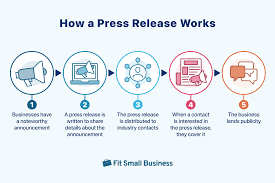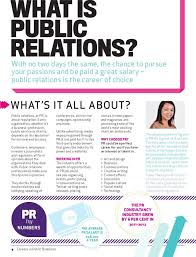Navigating the Media Landscape: The Role of a Media Relations Agency
The Role of a Media Relations Agency in Today’s Business Landscape
In the fast-paced and competitive world of business, having a strong media presence is crucial for success. This is where a media relations agency plays a vital role in helping companies navigate the complex landscape of modern communication.
A media relations agency acts as a bridge between businesses and the media. Its primary goal is to build and maintain positive relationships with journalists, editors, bloggers, and other key influencers in the industry. By doing so, the agency helps businesses secure media coverage, manage their reputation, and enhance their brand visibility.
One of the key functions of a media relations agency is to craft compelling stories and pitches that resonate with journalists and their audience. This involves understanding the client’s business objectives, target audience, and industry trends to create newsworthy content that captures attention.
Furthermore, a media relations agency helps businesses navigate crisis situations by providing strategic communication counsel and managing media inquiries effectively. In times of crisis, having a skilled team of professionals who can handle sensitive issues and protect the company’s reputation is invaluable.
Another important aspect of a media relations agency’s role is monitoring and analysing media coverage to assess the impact of PR campaigns. By tracking metrics such as reach, engagement, sentiment, and share of voice, the agency can provide valuable insights into the effectiveness of communication strategies.
Overall, a media relations agency serves as an essential partner for businesses looking to enhance their brand awareness, credibility, and reputation in today’s competitive market. By leveraging its expertise in storytelling, relationship-building, crisis management, and data analysis, the agency helps clients achieve their communication goals and stand out in a crowded media landscape.
Essential Questions About Media Relations Agencies: Understanding Their Role and Benefits for Businesses
- What is a media relations agency?
- Why do businesses need a media relations agency?
- How can a media relations agency help improve brand visibility?
- What services do media relations agencies typically offer?
- How does a media relations agency build relationships with journalists and influencers?
- What are the benefits of hiring a media relations agency over handling PR in-house?
- How does a media relations agency handle crisis communication for businesses?
- What should businesses look for when choosing a media relations agency to work with?
- Can a media relations agency help businesses measure the success of their PR campaigns?
What is a media relations agency?
A media relations agency is a professional service provider that specialises in managing and enhancing the communication between a business or organisation and the media. These agencies play a crucial role in helping companies navigate the complex landscape of modern communication by building and maintaining positive relationships with journalists, editors, bloggers, and other key influencers in the industry. Their expertise lies in crafting compelling stories, pitching newsworthy content, managing crisis situations, monitoring media coverage, and analysing PR campaigns to help businesses achieve their communication goals effectively. In essence, a media relations agency acts as a strategic partner that helps businesses secure media coverage, manage their reputation, and enhance their brand visibility in today’s competitive market.
Why do businesses need a media relations agency?
Businesses need a media relations agency to effectively navigate the complex and ever-changing landscape of modern communication. A media relations agency plays a crucial role in helping businesses build and maintain positive relationships with the media, secure valuable media coverage, manage their reputation, and enhance their brand visibility. With expertise in storytelling, relationship-building, crisis management, and data analysis, a media relations agency can provide businesses with strategic counsel and tailored communication strategies to ensure they stand out in a competitive market. By leveraging the agency’s knowledge and network of media contacts, businesses can amplify their message, reach their target audience effectively, and achieve their communication goals with impact.
How can a media relations agency help improve brand visibility?
A media relations agency can help improve brand visibility by leveraging its expertise in building relationships with journalists, influencers, and media outlets. Through strategic storytelling and targeted pitching, the agency can secure media coverage that showcases the brand in a positive light and reaches a wider audience. By crafting compelling narratives that resonate with the target market and align with the brand’s values, a media relations agency can generate buzz and increase brand recognition. Additionally, the agency’s ability to monitor and analyse media coverage allows for continuous optimization of communication strategies to ensure maximum visibility and impact for the brand.
What services do media relations agencies typically offer?
Media relations agencies typically offer a wide range of services to help businesses effectively navigate the media landscape and enhance their communication strategies. These services often include media outreach, press release writing and distribution, media monitoring and analysis, crisis communication management, influencer engagement, content creation, strategic storytelling, media training for spokespersons, event promotion, social media management, and reputation management. By providing these comprehensive services, media relations agencies aim to help clients secure positive media coverage, build strong relationships with journalists and influencers, manage their brand reputation effectively, and ultimately achieve their communication goals in a competitive market.
How does a media relations agency build relationships with journalists and influencers?
Building relationships with journalists and influencers is a core function of a media relations agency. To establish strong connections, the agency employs various strategies such as personalised outreach, providing valuable insights or exclusive content, and maintaining open lines of communication. By understanding the preferences and interests of journalists and influencers, the agency can tailor its pitches and story angles to resonate with their audience. Building trust through consistent and reliable interactions, offering timely responses to media inquiries, and demonstrating expertise in the client’s industry are key elements in fostering long-lasting relationships that benefit both parties. Through strategic relationship-building efforts, a media relations agency can effectively engage with journalists and influencers to secure media coverage and amplify the client’s brand message.
What are the benefits of hiring a media relations agency over handling PR in-house?
When considering the benefits of hiring a media relations agency over handling PR in-house, several key advantages come to light. Firstly, a media relations agency brings a wealth of industry expertise and connections to the table, offering access to a broader network of journalists, influencers, and media outlets. This can result in increased media coverage and visibility for the business. Additionally, agencies often have specialised skills in crafting compelling narratives, crisis management, and data analysis that may not be readily available in an in-house PR team. Outsourcing PR to an agency also allows businesses to focus on their core operations while leaving the complexities of media relations to professionals who are dedicated to achieving communication goals effectively and efficiently.
How does a media relations agency handle crisis communication for businesses?
During a crisis, a media relations agency plays a crucial role in managing communication for businesses. The agency swiftly develops a strategic crisis communication plan that includes assessing the situation, identifying key messages, and determining the most effective channels to communicate with stakeholders and the media. By providing timely and transparent updates, the agency helps businesses maintain control of the narrative and mitigate reputational damage. Additionally, the agency acts as a liaison between the company and the media, ensuring that accurate information is disseminated while also addressing any misinformation or rumours effectively. Through their expertise in crisis management and communication, a media relations agency helps businesses navigate challenging situations with professionalism and integrity.
What should businesses look for when choosing a media relations agency to work with?
When choosing a media relations agency to collaborate with, businesses should consider several key factors to ensure a successful partnership. Firstly, it is essential to evaluate the agency’s track record and experience in the industry. A reputable agency with a proven history of securing media coverage and delivering results for clients is likely to be a valuable asset. Additionally, businesses should assess the agency’s understanding of their industry and target audience, as well as their ability to craft compelling stories that resonate with journalists. Communication style, responsiveness, and transparency are also crucial aspects to consider when selecting a media relations agency, as effective communication and collaboration are essential for achieving mutual goals. By conducting thorough research and asking relevant questions, businesses can identify the right media relations agency that aligns with their communication objectives and values.
Can a media relations agency help businesses measure the success of their PR campaigns?
Businesses often wonder whether a media relations agency can assist them in measuring the success of their PR campaigns. The answer is a resounding yes. A reputable media relations agency plays a crucial role in evaluating the effectiveness of PR initiatives by tracking key performance indicators such as media coverage, audience engagement, sentiment analysis, and overall campaign impact. Through data analytics and reporting, a media relations agency can provide valuable insights into the reach and resonance of PR efforts, enabling businesses to assess their return on investment and make informed decisions for future communication strategies.












